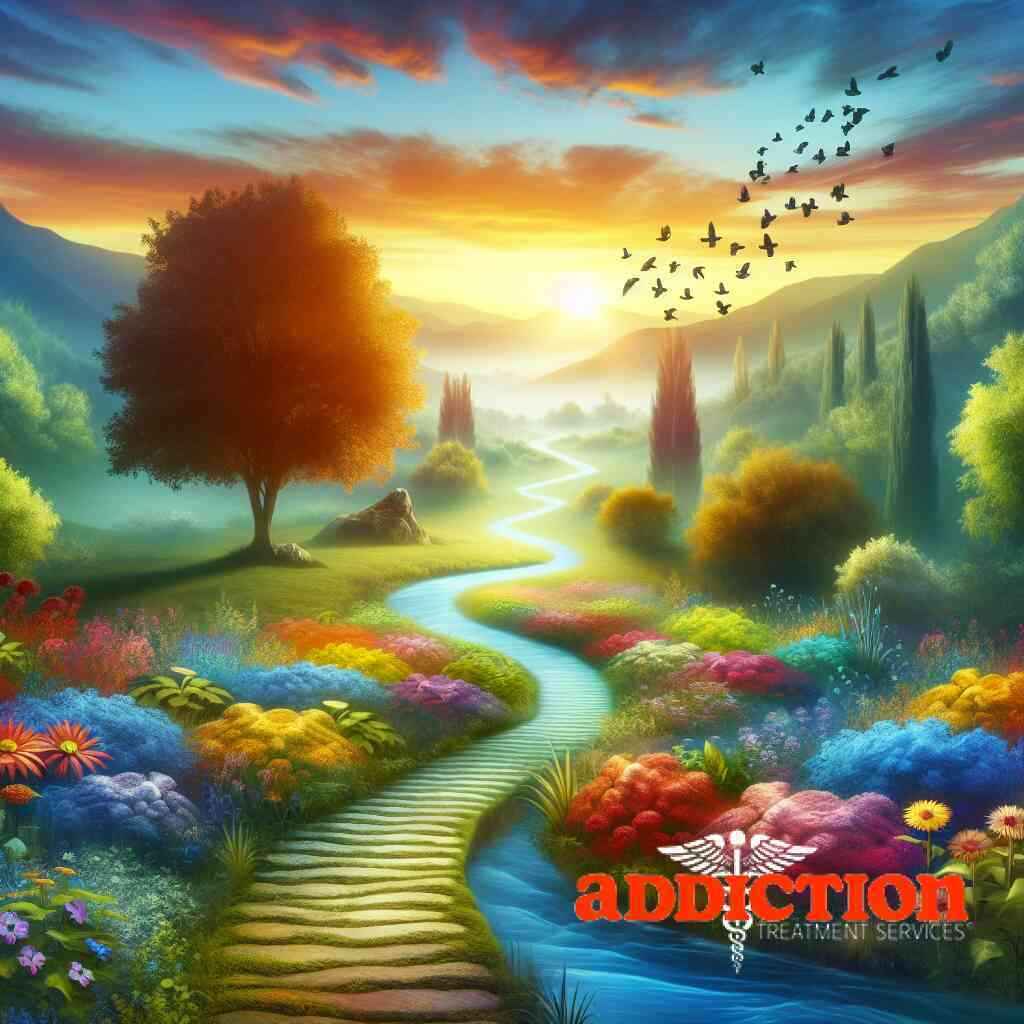 Posted On: 07/23/2024
Posted On: 07/23/2024Understanding Sex Addiction
Definition and Overview
Sex addiction, a complex and often misunderstood condition, falls under the umbrella of behavioral addictions. It’s characterized by an overwhelming preoccupation with sexual thoughts, urges, or behaviors that persist irrespective of potential negative consequences. This condition, while not officially recognized in diagnostic manuals like the DSM-5, is acknowledged by many experts in the field of psychology and addiction treatment. A person with sex addiction engages in persistent and escalating patterns of sexual behavior despite facing health risks, financial problems, strained relationships, or even potential legal consequences.
Comparing Sex Addiction with Other Behavioral Addictions
Sex addiction shares many similarities with other behavioral addictions, such as gambling disorder, Internet addiction, and compulsive shopping. These addictions are primarily defined by the obsessive need to engage in specific behaviors that lead to a temporary sense of relief or pleasure. However, these behaviors eventually create significant distress or impairment in various areas of one’s life. Like other behavioral addictions, sex addiction involves a cycle of craving, indulgence, and remorse. However, the focus on sexual activity and thoughts differentiates it from other forms of addiction, requiring unique therapy options for sex dependency.
The Spectrum of Sexual Behavior and Where Addiction Fits
Human sexual behavior exists on a broad spectrum, ranging from abstinence to active engagement in various sexual activities. Sex addiction is situated on this continuum as an extreme manifestation characterized by compulsive engagements and an inability to control sexual thoughts and actions. It’s essential to differentiate between a high sex drive and sex addiction-while the former refers to an increased desire for sexual activity, it doesn’t necessarily involve the compulsive behaviors, negative consequences, or distress associated with addiction. Understanding this distinction is crucial for both the individuals affected and the professionals supporting them in their journey towards recovery.
Biological Influences on Sex Addiction
Hormonal Factors and Sex Addiction
Hormonal imbalances play a significant role in the development and perpetuation of sex addiction. Testosterone, often associated with libido in both men and women, can, when found at elevated levels, contribute to increased sexual desire and, in turn, risky sexual behaviors. Conversely, imbalances in other hormones like serotonin and dopamine – neurotransmitters responsible for feelings of well-being and happiness – can drive an individual to seek pleasure from external sources, including sexual activity, to compensate for feelings of depression or inadequacy. Understanding these hormonal factors is crucial in addressing the root causes of sex addiction and developing effective treatment for sexual compulsivity.
Brain Chemistry and Structure in Relation to Sex Addiction
Recent studies have shown that individuals suffering from sex addiction may exhibit differences in brain chemistry and structure, particularly in areas associated with reward, motivation, and decision-making. For instance, an overactive reward system may make a person more susceptible to sex addiction by amplifying the perceived benefits of sexual activity and minimizing the potential negative consequences. Additionally, structural differences in the prefrontal cortex, a region responsible for self-control and judgment, could impair an individual’s ability to resist compulsive sexual urges. This insight into the neurological aspects of sex addiction highlights the importance of approaching recovery with strategies that address both the psychological and physiological facets of the disorder.
Genetic Influences and Vulnerability
While the idea of a “sex addiction gene” is overly simplistic, research suggests that genetic predispositions combined with environmental factors can increase one’s susceptibility to addiction, including sex addiction. A family history of addiction, whether related to substances or behaviors, can be a strong indicator of an individual’s likelihood of developing similar issues. Genetic factors may influence how one’s brain responds to reward-based stimuli, making people more vulnerable to addictive behaviors. Recognizing the interplay between genetics and environment is critical in the comprehensive treatment of sex addiction, guiding personalized approaches that consider an individual’s unique risk factors and resilience mechanisms.
Psychological Factors Contributing to Sex Addiction
The Role of Anxiety, Depression, and Low Self-Esteem
Individuals grappling with anxiety, depression, or low self-esteem often find themselves in a relentless search for relief or escapism. Sex addiction emerges as a coping mechanism, albeit unhealthy, for some of these individuals. The euphoria and temporal self-worth gained from sexual acts or thoughts can momentarily mask underlying psychological distress. However, this is a fleeting respite that doesn’t address the root causes of their mental health issues. Instead, it often exacerbates feelings of shame and loneliness once the momentary pleasure subsides. Engaging in dual diagnosis treatment for sex addiction is crucial for those whose sex addiction co-occurs with mental health disorders, as it addresses both aspects simultaneously.
Evaluating the Impact of Early Exposure to Sexual Content
Early exposure to sexual content, whether through the media, the internet, or real-life experiences, can have a longstanding impact on an individual’s perception of sex and relationships. When young minds are subjected to sexual material, it can distort their understanding of healthy sexual behavior, leading to unrealistic expectations and an overemphasis on sex’s role in their lives. This early indoctrination often paves the way for sex addiction as individuals grow older, seeking to replicate the sensations and experiences they were exposed to prematurely. Addressing these influences is a critical component of recovery, requiring a comprehensive approach that often includes psychotherapy for sex attachment disorder, helping individuals unravel and reframe their learned associations with sex.
Understanding Intimacy Disorders and Sex Addiction
Intimacy disorders are closely linked to sex addiction, with many sex addicts struggling to form or maintain healthy, intimate relationships. Fear of closeness, vulnerability, or abandonment can drive individuals towards sexual compulsivity as a means to fill the void of genuine intimacy. However, this compulsive behavior only further isolates them from forming real connections, creating a vicious cycle that fuels both the addiction and the intimacy disorder. Therapeutic interventions focusing on building self-esteem, developing healthy relationship skills, and addressing past traumas are vital in breaking this cycle. Recognizing the complex interplay between intimacy disorders and sex addiction is paramount for those seeking addiction recovery services, as addressing one without the other may lead to incomplete recovery and a higher risk of relapse.
Societal and Environmental Influences
Media Representation of Sexuality and Its Effects
The portrayal of sexuality in the media is a double-edged sword. On the one hand, it can be a source of education and open dialogue; on the other, it often presents an unrealistic and hypersexualized view of relationships and sex. This skewed representation can distort individuals’ perceptions of normal sexual behavior and desires, especially among the younger population who are still forming their sexual identities. Exposure to sexually explicit material at an early age can condition the mind to associate sexual activity with pleasure or escapism, potentially sowing the seeds for sex addiction later in life. It’s imperative to encourage critical thinking and media literacy from a young age to mitigate these effects, as well as to promote healthy, realistic views on sexuality and relationships.
Childhood Trauma and Its Link to Sex Addiction
Childhood trauma, including physical, emotional, and sexual abuse, significantly correlates with the development of sex addiction in adulthood. Survivors of such trauma often carry deep-seated emotional scars, leading them to seek out coping mechanisms that provide temporary relief or a sense of control. Compulsive sexual behavior can become one such mechanism, offering an escape from pain or a way to reclaim agency over one’s body. However, without addressing the underlying trauma through therapeutic intervention, this behavior can evolve into a full-blown addiction, further complicating the individual’s emotional and psychological healing process. Integrating trauma-informed care within addiction treatment services is crucial for providing a comprehensive approach to recovery.
The Role of Stress and Lifestyle in Developing Sex Addiction
Modern life is rife with stressors-from job insecurity and financial pressures to relationship issues and the relentless pace of technology. This chronic stress can push individuals towards unhealthy coping mechanisms, including sex addiction, as a way to experience relief or pleasure amidst the turmoil. Additionally, certain lifestyles and professions that normalize or even glorify frequent sexual encounters can contribute to the normalization of compulsive sexual behavior. In such environments, distinguishing between a healthy sex life and problematic behavior becomes challenging. Employing stress management techniques, establishing healthy boundaries, and adopting a balanced lifestyle are essential preventative measures. Moreover, for those already struggling, an outpatient program for sex addiction can offer the structured support needed to navigate the complexities of recovery while managing day-to-day life.
Signs and Symptoms of Sex Addiction
Recognizing Compulsive Sexual Behavior
Compulsive sexual behavior is a hallmark sign of sex addiction, manifested through an uncontrollable urge to engage in sexual activities despite the adverse outcomes or desires to stop. Individuals may find themselves preoccupied with sexual thoughts or fantasies that interfere with their daily lives, work, and personal relationships. Behaviors can range from excessive use of pornography to engaging in risky sexual practices. Recognizing these patterns is the first step in acknowledging the need for help. Seeking addiction in sexual behavior support is crucial for managing and overcoming these compulsions, guiding individuals towards healthier behavior patterns and improved self-control.
Emotional Consequences of Sex Addiction
The emotional toll of sex addiction extends beyond the compulsion itself, impacting individuals on a deeply personal level. Feelings of shame, guilt, and low self-esteem are commonly reported, stemming from the secretive nature of their behaviors and the societal stigma surrounding sex addiction. These emotional repercussions can exacerbate co-occurring disorders such as depression and anxiety, creating a cycle that feeds back into the addictive behavior. It’s essential for those suffering to know that addiction treatment services are available, offering a non-judgmental space for healing and recovery. Addressing the emotional aspects of sex addiction is a critical component of treatment, fostering a pathway to emotional resilience and well-being.
Social and Relational Impact of Sex Addiction
Sex addiction can severely strain relationships with partners, family members, and friends, leading to isolation, mistrust, and sometimes the dissolution of significant relationships. The secretive nature of the addiction often results in substantial others feeling betrayed or neglected. In contrast, the person struggling with addiction may withdraw socially to avoid judgment or to spend more time engaging in addictive behaviors. Repairing these relationships and rebuilding trust is an integral part of the recovery process. Support systems, including therapy, support groups, and sometimes sex dependency therapy solutions, are vital, offering the affected individual and their loved ones a way to navigate the complexities of addiction together. Understanding and addressing the impact on relationships can encourage more open, honest communication and foster healthier dynamics moving forward.
Treatment and Recovery Options for Sex Addiction
Outpatient Treatment for Sex Addiction
Outpatient treatment programs offer flexibility and support for those recovering from sex addiction while allowing them to maintain their daily responsibilities. These outpatient services in Delray Beach for sex compulsion often include individual therapy, group sessions, and educational workshops designed to tackle the underlying causes of sex addiction. Participants benefit from a structured program that addresses both the addiction and any co-occurring mental health issues, such as depression or anxiety, without the need for full-time residential care. This approach encourages the development of healthy coping mechanisms and relationship skills essential for long-term recovery.
Residential Treatment for Sex Addiction
For individuals seeking an immersive recovery experience, residential care for sex compulsion provides an intensive level of support. These facilities offer a safe and structured environment where individuals can focus solely on their recovery, away from daily triggers and stressors. Programs typically include a combination of individual therapy, group therapy, and holistic treatments designed to treat the person as a whole. This setting allows for a deeper exploration of the addiction’s root causes and fosters a supportive community atmosphere, strengthening the recovery journey.
Therapy Options for Sex Addiction: From CBT to Group Therapy
A cornerstone of sex addiction treatment involves various therapy modalities designed to address the cognitive, emotional, and social aspects of addiction. Cognitive-behavioral therapy (CBT) is widely used for its effectiveness in helping individuals identify and challenge destructive thought patterns and behaviors. Meanwhile, group therapy provides a supportive space for sharing experiences and learning from others facing similar challenges. Other therapy options may include psychodynamic therapy, which explores unresolved issues from the past, and mindfulness-based therapies, which focus on developing a more compassionate and non-judgmental relationship with oneself.
The Role of Medication-Assisted Treatment
While there is no specific medication for treating sex addiction directly, medication-assisted treatment (MAT) can be beneficial for individuals with co-occurring disorders such as depression, anxiety, or psychoactive drugs influencing sex compulsion. MAT involves the use of medications, in conjunction with therapy, to treat the mental health conditions contributing to the addiction. By addressing these underlying issues, individuals may find it easier to manage their compulsive sexual behaviors and focus on recovery.
Integrating Family Support in the Recovery Process
Family involvement is a critical aspect of a successful recovery from sex addiction. Therapy sessions that include family members can help repair relationships damaged by addiction and improve communication and understanding. Family therapy provides a platform for addressing the complex dynamics of addiction within the family system, fostering a supportive environment conducive to healing. By participating in the recovery process, families can learn to set healthy boundaries and offer constructive support, significantly impacting their loved one’s journey to recovery.
Early Intervention and Relapse Prevention Strategies
Implementing early intervention and relapse prevention strategies is critical to sustaining long-term recovery from sex addiction. Early intervention programs aim to identify and address addictive behaviors before they escalate. At the same time, relapse prevention strategies equip individuals with the tools needed to recognize and manage triggers and high-risk situations. These may include developing a solid support network, engaging in regular therapy sessions, and practicing self-care routines. By focusing on resilience and coping mechanisms, individuals can navigate the challenges of recovery with confidence.
Lifestyle Changes and Support Systems in Recovery
Adopting a Healthy Lifestyle for Sustainable Recovery
Embarking on a journey toward recovery from sex addiction necessitates embracing lifestyle adjustments that foster physical, emotional, and psychological well-being. Adopting a healthy lifestyle is not merely about abstaining from compulsive sexual behaviors; it’s about nurturing your body and mind to support sustainable recovery. This holistic approach includes regular physical activity, balanced nutrition, adequate sleep, and stress-management techniques such as mindfulness or yoga. Engaging in positive activities and hobbies that bring joy and fulfillment can also redirect focus and energy away from addictive behaviors. Such changes create a strong foundation for recovery, enhancing one’s resilience against triggers and preventing relapse. With each healthy choice, individuals reaffirm their commitment to recovery, healing, and a brighter future.
The Importance of Support Groups: AA Meetings, NA Meetings
For many battling sex addiction, the road to recovery can feel isolating. However, support groups such as Alcoholics Anonymous (AA Meetings) and Narcotics Anonymous (NA Meetings) offer a sense of community and understanding that can be instrumental in overcoming addiction. While traditionally focused on substance abuse, the principles and structure of these meetings provide valuable insights and support for individuals with sexual compulsivity. Going beyond sharing experiences, these meetings encompass a framework for personal accountability, offering a step-by-step approach to recovery. Attendance encourages members to lean on each other for support, fostering a network of individuals who understand the complexity of addiction and the challenges of recovery. Embracing the community aspect of support groups can significantly contribute to a sense of belonging and motivation to persevere through the recovery journey.
Building Healthy Relationships and Rebuilding Trust
Sex addiction can wreak havoc on personal relationships, often leading to broken trust and emotional turmoil. Recovery, therefore, includes the crucial steps of building healthy relationships and rebuilding trust with those affected. This process begins with open, honest communication about one’s addiction and a commitment to change. Seeking sexual behavior rehab services can provide individuals with the tools and guidance needed to navigate the complexities of interpersonal relationships during recovery. It involves learning how to establish boundaries, express needs and emotions healthily, and listen empathetically to the experiences and concerns of others. Rebuilding trust is a gradual process, requiring consistency, patience, and the willingness to make amends. By actively working on these aspects, individuals can foster supportive, understanding relationships that bolster recovery and provide a network of mutual support.
Sexual Health and Wellness Post-Addiction
As individuals progress in their recovery from sex addiction, a significant area of focus is reestablishing a healthy view of sex and intimacy. This involves an exploration of sexual health and wellness, guided by an understanding that sex can be a positive and fulfilling part of life when engaged in healthily and consensually. Education plays a vital role in this phase, with therapy and support groups offering safe spaces to discuss and learn about healthy sexual behaviors, consent, and emotional intimacy. Addressing any co-occurring physical health concerns with medical professionals is also essential to ensure that one’s physical health supports one’s recovery journey. By prioritizing sexual health and wellness, individuals can reclaim a sense of ownership over their sexual choices, fostering a balanced and gratifying approach to sexuality post-addiction.
Conclusion: Empowering Recovery and Embracing Support
Summarizing Key Takeaways on Sex Addiction Causes and Recovery
Sex addiction is a profoundly complex condition rooted in a blend of biological, psychological, and environmental factors. From hormonal imbalances and genetic predispositions to the impact of early exposure to sexual content and untreated mental health conditions such as anxiety, depression, and low self-esteem, the causes of sex addiction are multifaceted. It’s also important to consider the societal and relational influences that can exacerbate or trigger the condition, including the effects of media portrayal of sexuality, the stress of modern life, and the aftermath of childhood trauma. Understanding the broad spectrum of causes is crucial for effective treatment and recovery, underscoring the importance of a comprehensive, personalized approach that addresses the unique needs of each individual.
The Vital Role of Comprehensive Addiction Treatment Services
Addiction Treatment Services plays an invaluable role in guiding individuals through the maze of available recovery options, offering a lifeline to those struggling with sex addiction. With an extensive directory of addiction treatment centers, including services for dual diagnosis and co-occurring disorders, this platform ensures that individuals can find the support they need tailored to their specific circumstances. From exploring outpatient and residential treatment options to connecting with specialized programs like the recovery center Reco Intensive, Addiction Treatment Services is a central hub for resources, information, and support, embodying the comprehensive care necessary for meaningful recovery.
Moving Forward: Maintaining Recovery and Preventing Relapse
The journey of recovery from sex addiction is ongoing, with continuous self-awareness and support crucial for maintaining progress and preventing relapse. Engaging in regular therapy, participating in support groups such as Narcotics Anonymous Meetings for sex obsession, and adopting a healthy lifestyle are all critical components of a sustainable recovery process. It’s also vital to build and nurture healthy relationships, prioritize sexual health and wellness, and develop robust relapse prevention strategies. By embracing a holistic approach to recovery that recognizes the interplay of physical, emotional, and social factors, individuals can move forward with resilience, hope, and the support of a community that understands and champions their journey to well-being.
Frequently Asked Questions
Question: What are the primary causes of sex addiction, and how does “What Causes Sex Addiction?” align with the services offered by Addiction Treatment Services?
Answer: The primary causes of sex addiction are multifaceted, involving biological, psychological, and environmental factors. Our blog titled “What Causes Sex Addiction?” dives deep into these aspects, closely reflecting the comprehensive approach of Addiction Treatment Services. We understand that to effectively address sex addiction, a personalized and holistic treatment plan is crucial. Our directory connects individuals to addiction treatment centers that specialize in tackling the root causes of sex addiction, from hormonal imbalances and intimacy disorders to the impact of societal pressures. With access to a variety of services, including dual diagnosis treatment for co-occurring disorders, outpatient and residential treatment options, and specialized therapy for sex addiction, we ensure individuals receive targeted, effective care. By choosing Addiction Treatment Services, you are not just finding a treatment center; you are stepping towards a tailored recovery process that acknowledges the complexity of sex addiction.
Question: How can Addiction Treatment Services help in the recovery process for someone struggling with compulsive sexual behavior?
Answer: Addiction Treatment Services aids in the recovery process from compulsive sexual behavior by providing a streamlined platform to connect individuals with appropriate addiction treatment centers. Understanding that recovery necessitates a multifaceted approach, we offer a vast directory of services tailored to meet specific needs, including intensive outpatient programs, residential treatment, and therapy options for sex addiction. Our comprehensive resources ensure that every individual has access to behavioral health services, including medication-assisted treatment and counseling that targets the psychological factors of sex addiction. With our focus on early intervention and relapse prevention, we guide individuals toward sustainable recovery, helping them navigate the challenges of overcoming compulsive sexual behavior with confidence and support.
Question: What options are available through Addiction Treatment Services for someone dealing with both sex addiction and a substance use disorder?
Answer: For individuals facing the dual challenge of sex addiction and substance use disorder, our directory offers specialized dual-diagnosis treatment centers that are equipped to address both issues simultaneously. Recognizing the intricate link between co-occurring disorders, these facilities provide a combination of addiction counseling, behavioral health services, and medication-assisted treatment, specifically designed to manage and treat the complexities of dual diagnoses. Through Addiction Treatment Services, individuals can find programs that not only focus on addictive behaviors but also delve into the underlying psychological factors contributing to both sex addiction and substance use disorder. Our commitment is to facilitate access to comprehensive care that supports the recovery process for each aspect of the individual’s health, ensuring a holistic path toward wellness.
Question: Can Addiction Treatment Services recommend any specific therapy options for those seeking help with sex addiction?
Answer: Absolutely. Through our extensive directory, Addiction Treatment Services connects individuals with a wide range of therapy options catered explicitly to sex addiction recovery. These options include, but are not limited to, Cognitive-Behavioral Therapy (CBT), which is highly effective in addressing the cognitive patterns that contribute to addictive behavior; group therapy sessions that offer support and understanding from peers facing similar challenges; and psychodynamic therapy to explore unresolved issues from the past. Furthermore, for individuals who benefit from an integrative approach, we also list providers offering mindfulness-based therapies and family therapy, both of which can play crucial roles in the healing process. We aim to guide individuals toward the most fitting therapy options for their unique circumstances, facilitating a tailored recovery journey.
<toString()> Question: How do Addiction Treatment Services support the inclusion of family members in the addiction recovery process?
Answer: Addiction Treatment Services strongly believes in the importance of family involvement in the addiction recovery process, recognizing that addiction impacts not just the individual but their loved ones as well. Through our directory, individuals can find addiction treatment centers that offer comprehensive family therapy sessions and support groups designed to heal relationships and foster understanding. These services not only educate families about the dynamics of addiction and recovery but also equip them with tools to support their loved one while setting healthy boundaries effectively. By integrating family support, we aim to create a holistic recovery environment that encourages open communication, rebuilds trust, and facilitates collective healing, contributing to a more resilient foundation for the individual’s journey to recovery.




